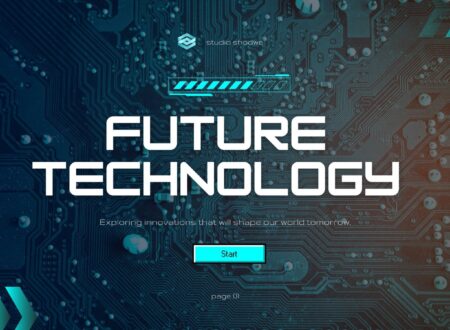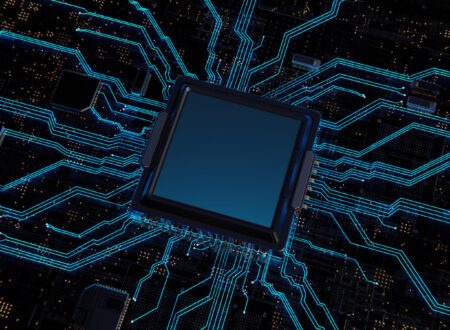Introduction to Technology and Innovation
Technology is woven into the fabric of our everyday lives. From the moment we wake up to the sound of our smart alarms, to how we communicate with loved ones across continents, innovation shapes our experiences in profound ways. It’s hard to imagine a world without smartphones, artificial intelligence, or even simple conveniences like online shopping.
As we embark on this journey through innovation and technology’s impact on various sectors, we’ll explore how these advancements are not just tools but catalysts for change. The pace is dizzying; every day brings new breakthroughs that redefine what is possible. Join me as we dive into the current landscape of technology and discover its potential to reshape industries and society alike.
The Current State of Technology
Technology is advancing at an unprecedented rate. Smartphones have become essential tools, integrating various functions into one device. Communication has transformed; we can connect with anyone around the globe instantly.
Artificial intelligence is no longer just a concept from science fiction. It’s now part of our daily lives, powering virtual assistants and enhancing customer service experiences. Automation is reshaping industries, streamlining processes that were once labor-intensive.
The Internet of Things (IoT) connects everyday objects to the internet, allowing for remote monitoring and control. Smart homes are on the rise, making life more convenient but also raising questions about security.
Cybersecurity challenges grow alongside these advancements. As technology evolves, so do threats—highlighting the need for robust protection measures in both personal and professional spheres. This landscape reflects not only innovation but also complexity as we navigate digital transformation together.
Technological Advancements in Different Industries
Technology is revolutionizing various industries at a rapid pace. In healthcare, telemedicine has become essential. Patients can now consult doctors from the comfort of their homes, improving access to care.
In agriculture, precision farming techniques are gaining traction. Farmers use drones and sensors to monitor crops efficiently, optimizing yields while minimizing waste.
The automotive sector isn’t left behind either. Electric vehicles are becoming mainstream with improved battery technology and charging infrastructure. This shift not only reduces emissions but also changes how we think about transportation.
Retail is experiencing a transformation through e-commerce and AI-driven analytics. Personalized shopping experiences are now commonplace thanks to machine learning algorithms understanding consumer preferences better than ever before.
Even in education, online platforms have made learning more accessible worldwide. Virtual classrooms allow students to connect globally, breaking traditional barriers in education delivery and resource availability.
The Impact of Technology on Society
Technology has woven itself into the fabric of our daily lives. It influences how we communicate, learn, and even work. Social media platforms connect people across vast distances, creating communities that never existed before.
On the flip side, this hyper-connectivity can lead to isolation. Many find themselves more engaged with screens than with those around them. The balance between connectivity and personal interaction is delicate.
Education has seen a tremendous transformation as well. Online learning resources are abundant, making knowledge accessible like never before. However, not everyone benefits equally from these advancements due to disparities in access to technology.
Healthcare is another area where innovation shines brightly. Telemedicine allows patients to consult doctors without leaving their homes. Yet ethical dilemmas arise regarding data privacy and patient consent.
The societal impact of technology is profound but complex, creating opportunities while posing new challenges for individuals and communities alike.
Potential Future Developments in Technology
As we look ahead, the landscape of technology promises to transform in ways we can only imagine. Artificial intelligence is set to become even more integrated into our daily lives, enhancing everything from healthcare diagnostics to personalized education.
Quantum computing could revolutionize data processing speed and security. This leap might help solve complex problems that are currently beyond our reach.
Augmented reality (AR) and virtual reality (VR) technologies will likely redefine how we interact with digital content. Imagine attending virtual concerts or meetings as if you were physically there.
Sustainable tech innovations are also on the rise. Cleaner energy solutions like solar panels and wind turbines will further reduce our carbon footprint, encouraging a greener future.
With these advancements on the horizon, it’s clear that innovation is not just about convenience—it’s about creating a better world for everyone.
Ethical Concerns Surrounding Innovation
As technology advances, ethical concerns emerge. The rapid pace of innovation often outstrips our ability to address the moral implications.
Data privacy is a significant issue. With vast amounts of personal information being collected and analyzed, individuals may unknowingly sacrifice their privacy for convenience. This trade-off raises questions about consent and ownership.
Then there’s the impact on employment. Automation threatens jobs across various sectors, leaving many workers uncertain about their future. As machines take over routine tasks, society must consider how to support those displaced.
Moreover, bias in algorithms can perpetuate discrimination. If we don’t scrutinize the data that powers AI systems, existing inequalities could be exacerbated rather than alleviated.
Environmental concerns cannot be ignored. Technological advancements should prioritize sustainability to prevent further damage to our planet’s resources. Balancing progress with ethical responsibility is essential as we navigate this innovative landscape.
Conclusion
The rapid evolution of technology continues to redefine our daily lives. As we navigate this landscape, it’s crucial to remain aware of both the benefits and challenges that innovation brings. The advancements we’ve seen so far hint at even greater changes on the horizon.
Embracing these technological shifts can unlock remarkable opportunities across various sectors. However, society must also engage in meaningful discussions about ethics and responsibility as we move forward. As we stand on the brink of a new era, being informed and proactive will be key to ensuring that technology serves humanity positively.
As we look ahead, it’s clear that innovation is not just about gadgets or systems—it’s about how these tools shape our collective future. By staying engaged with ongoing developments, we can better prepare for a world where technology enhances human potential while addressing ethical considerations along the way.





